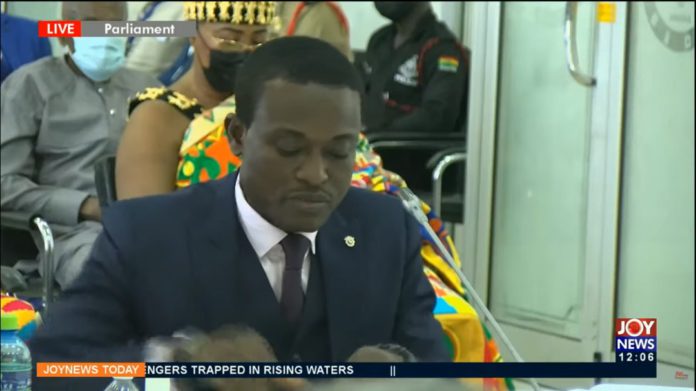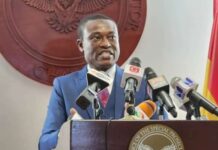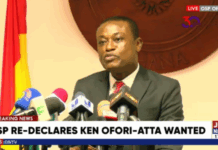
On 24 June 2007 Ghana ratified the United Nations Convention Against Corruption, which is the only legally binding universal anti-corruption instrument. In his foreword on the General Assembly resolution adopting the Convention, Kofi Annan stated that “[C]orruption is an insidious plague that has a wide range of corrosive effects on societies.
It undermines democracy and the rule of law, leads to violations of human rights, distorts markets, erodes the quality of life and allows organized crime, terrorism and other threats to human security to flourish.” Unhappily, these words ring ever too forcefully in Ghana as corrupt practices debase our progress, and our performance on the corruption perception index compiled by Transparency International has been marked by perennial underachievement.
Yet, Ghana is taking remarkable steps in the quest to suppress and repress corruption. The recent amendment of the Criminal Offences Act under the Criminal Offences (Amendment) Act, 2020 (Act 1034) upgrading corruption and corruption-related offences from misdemeanours to second degree felonies is indicative of a reckoning of the destructiveness of corruption and a desire to stem the tide of such offences by imposing stiffer sentences on offenders.
Ghana made its most definitive statement on the strife against corruption with the passage of the Office of the Special Prosecutor Act, 2017 (Act 959) which came into force on 2 January 2018 and established the Office of the Special Prosecutor (OSP) as the gold standard and flagship specialized independent anti-corruption agency, in pursuance of the Convention, with the object of investigating and prosecuting specific cases of alleged or suspected corruption and corruption-related offences in the public and private sectors, recovering the proceeds of such acts by disgorging illicit and unexplained wealth and taking steps to prevent corruption.
The notable advancement is that the OSP is fortified with the cure of the inadequacies of the existing anti-corruption agencies by being designed as a comprehensive anti-graft agency with investigative, prosecutorial, intelligence gathering, surveillance and countersurveillance, police, national security and revenue generating powers. The OSP is thus a vital institution for economic development.
The OSP has completed a review of all the alleged cases of corruption and corruption-related offences before it. Currently, the OSP is investigating thirty-one (31) active cases and it will in due course commence the prosecution in the courts of the cases it considers probatively strong. There is no case commenced by the OSP pending in the courts at the moment.
The assignment and full dedication by the Government of a ten-storey building at South Ridge, Accra for the sole use of the OSP and the steps taken and being taken by the Office of the President and the Chief of Staff in the establishment and maintenance of the OSP are highly commendable and a testament to a commitment to the fight against corruption.
Upon my assumption of office on 5 August 2021 as the second Special Prosecutor of the Republic, I noticed that the OSP had not been operationalised and it was without its own staff and necessary resources. The fight against corruption had, in effect, been thrown in reverse for three (3) years. I immediately triggered the processes to set up and operationalise the Office, to staff it with specialized trained personnel and to fit it with the required material resources and equipment. By so doing, the fight against corruption has been resuscitated and we will carry on the renewed fervour during my tenure in office.
As the institution specifically tasked with taking steps to prevent corruption, I resolve that in the coming year the OSP will institute and strengthen measures to prevent, suppress and repress corruption more efficiently and effectively than has ever been done in this Republic. This should portend hope that Ghana is taking concrete steps to drive down the incidence of corruption.
I have commenced engagement with law enforcement and anti-corruption agencies including the Attorney General’s, National Security Secretariat, Ghana Police Service, Commission on Human Rights and Administrative Justice, Economic and Organised Crime Office, and the Financial Intelligence Centre.
I have opened insightful interactions and meetings with foreign and diplomatic missions and international organisations in accordance with our mutual legal assistance regime and that of the Convention.
I have invited the participation and collaboration of anti-corruption civil society, non-governmental and community-based organisations, the media, and investigative journalists to support the work and operations of the OSP in our collective effort in combating corruption. I state with gratification that the response has been enthusiastic.
From January 2022 the OSP will institute, as part of its pressure-for- progress drive, an Annual Ghana Corruption League Table to assess perceived levels of public sector corruption in the estimation of experts and business people. In aid of this, public agencies would be ranked against each other on a corruption barometer and the results would be publicised every 9 December.\
The OSP would also require all public institutions, departments, agencies, and companies to prepare and submit Integrity Plans intended at assessing deficiencies in their regulations, procedures, policies, guidelines, administration instructions and internal control mechanisms to determine their vulnerability and exposure to corrupt practices and the prescription of curative measures to manage such susceptibility to corruption and corruption-related offences. I am setting up internal control mechanisms to prevent corruption at the OSP itself.
The OSP would carry out anti-corruption risk assessment and review of all major public contracts, legislation and draft legislation. This is intended to avoid toxic deals and the prevalence of judgment debts and arbitral awards.
The Office would also undertake continuous education and information of the public and the publicising of detected acts of corruption.
The OSP would vigorously investigate and prosecute cases of alleged or suspected corruption and corruption-related offences and recover proceeds of such offences through property tracing of tainted property and currency in line with our vision of rendering corruption a costly enterprise.
I look forward to the provision of adequate funding and the necessary material resources as stipulated in Articles 6 and 36 of the Convention to carry out this most challenging and solemn mandate. I cannot help but state that without adequate funding and the provision of the necessary material resources, the good intentions of my staff and I would remain just good intentions with nothing concrete to show for it.
As we mark International Anti-Corruption Day and anti-corruption week, I invite all well-meaning Ghanaians to renew our mindsets and collectively help to turn the negative narrative of corruption to transform this Republic and place it on a solid developmental track. On this score, we must draw on the wisdom of hindsight in our pursuit of a fairer society.
We cannot continue on the path of see-no-evil-hear-no-evil. Let us expose the evil of corruption and let us eschew corrupt practices – as we bear in mind that ours should be a life of live-and-let-live in the national interest. We must transform our thinking and psyche from a ritualistic gift-giving society marked by undeserved attainment of wealth to secure undue advantage in all spheres of life to one of merit-based rewards. This is our sure chance to curb corruption and we cannot miss this opportunity.
God bless us all.
God bless Ghana.
KISSI AGYEBENG
Special Prosecutor





